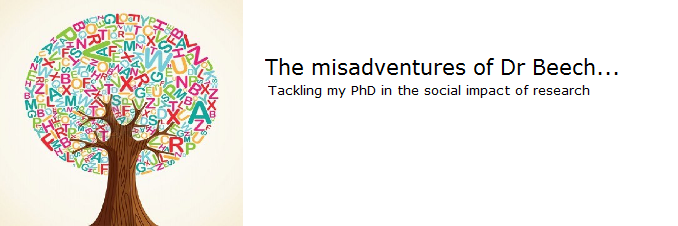
A support network for academic researchers
I think embedding this kind of impact support into university culture is really important; as Ian M Carter points out in his DESCRIBE essay:
‘Making non-academic impact a part of research applies as much to the support structures as to the researchers and what they do’.
Basically, in order for researchers to be able to create meaningful impact, they need the required knowledge, guidance and tools. I believe it is important that the knowledge, guidance and tools are a product of rigorous academic research to ensure they are fit for the job, and it is this research that I intend to carry out.
Creating impact as part of your research journey
Ian also talks about the importance of making impact activities part of the research journey, something which I discussed in an earlier blog post. This really can’t be emphasised enough, as the earlier you embed research dissemination activities into your work, the more of an impact you will see over time and the more opportunities you will find for impact along the way, rather than just attempting them as an afterthought.
A flexible research impact toolkit
When designing my social impact toolkit I want to do it alongside the research journey, so that researchers can pick and choose their activities along the way and really work towards building cumulative impact as their work progresses. As Ian points out:
‘Institutions should be looking to embed expertise into their routine processes and activities, so that they are fit for purpose, for delivering high quality research and enabling its appropriate translation into practical benefit, not just responding to a particular (albeit very important) assessment process.’
Whilst a lot of ongoing impact discussions have been born out of the need to respond to REF2014 requirements, it is now time for us to make the activities that are useful and bring good returns, routine in our research. The most effective way to do this is to have a strong system of internal support that enables researchers and adapts to their needs.
